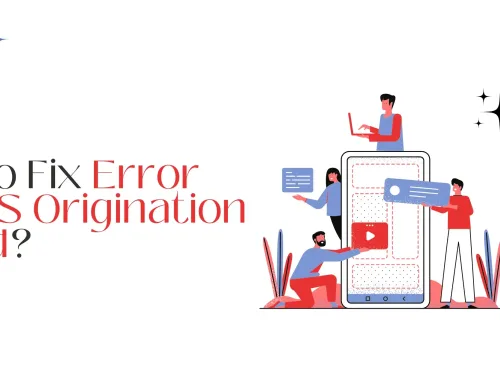Introduction
In the era of digitization, search engines hold supreme importance in our daily lives. They assist us in finding information about everything ranging from the latest global news and juiciest entertainment gossip to practical guides and helpful suggestions. Nonetheless, despite their credibility, recent mishaps have underscored their shortcomings.
One such debacle is the ‘Monkey Holding Box ‘ clip, which has garnered significant attention in the online community. Initially, only Google presented this video when searched, but now, Bing and Yahoo have joined the fray.
However, users are now presented with an unrelated video on YouTube instead of finding the pertinent information or image. This error by search engines has raised concerns about the dependability of their algorithms and bots.
Why Search Engines Need to Improve Their Relevance Algorithm
We always expect relevant search engine results. The ‘Monkey Holding Box ‘ video controversy has shown flaws in search engine relevancy. Most people anticipate seeing monkeys carrying boxes or having fun with them when they type “Monkey Holding a Box.”
Due to erroneous tags and titles, search engines started showing a video of a young Black boy carrying a box as the top result. This error has sparked worries about search engine relevance algorithms. Despite their complex programming, bots sometimes need help understanding common sense, resulting in irrelevant or improper outcomes.
Read: iMac Pro i7 4K Review
As search engines become increasingly important, their algorithms must be reliable. The ‘Monkey Holding Box debate highlights the need to improve search engines’ relevancy algorithms to give more relevant and useful results.
The Need for Continuous Development in Search Engine Algorithms
We rely on search engines to find information fast and conveniently. The Search engines constantly update their algorithms to deliver more relevant and accurate results to billions of users. Search engines compete on the content relevant to users. Search engines employ keywords, tags, and social signals.
The ‘Monkey Holding a Box’ video scandal shows that these indications sometimes misrepresent users’ demands on web crawlers. The incident underlines search engines’ need to improve their algorithms to comprehend customers’ requirements better.
As search habits evolve, search engines must adjust. Voice search is growing, and search engines must use natural language processing to understand spoken searches.
Search engines must also enhance their algorithms to deliver faster, more relevant results on mobile devices as more people use them. In conclusion, the ‘Monkey Holding a Box’ video debate shows that search engines must keep improving their algorithms to match customer needs. Search engines can preserve confidence and continue to serve billions of people by doing so.
But Why Google Showed a Boy Instead of a Monkey Holding a Box?
The misleading title of the ‘Monkey Holding Box ‘ video caused controversy. Instead of appropriately summarizing the film, the guy used a funny analogy that had nothing to do with it. Misleading titles and tags for web crawling are widespread. Many producers use this approach to rank higher on search engines.
However, the title caused confusion and frustration. It’s not just the content creator’s job to utilize appropriate labels and tags but also the search engines’ to ensure the material matches the query. The search engines didn’t realize the video wasn’t about a monkey holding a box. Users searching for monkey content were shown a video of a boy carrying a box.
Read: Liteboxer Fitness Bundle
People started searching for the video to check if it was at the top of the search results, making the scenario even stranger. This instance underlines the importance of correct labeling and the need for search engines to constantly update their algorithms to understand customers’ wants and preferences better.
Uncovering Racism: The Tragic Mislabeling of a Boy as a Monkey
The “Monkey Holding a Box” video scandal worsened when the truth was revealed. The original image was a Black youngster carrying a box, not a monkey. While searching for a photograph with the same title, the YouTuber found this. Seeing the boy’s image mislabeled as a monkey is upsetting.
The picture being mislabeled as a monkey is the worst part of this story. Our society’s deep-rooted racism is reflected in it. For generations, calling a Black youngster a monkey has dehumanized and oppressed Black people.
The YouTuber wants to draw attention to this issue and highlight racism as the real cause of mislabeling. The goal is to start a conversation about racism in all forms and promote a more just and equal society by exposing this horrible tragedy.
The Impact of Search Engine Errors on Users
Search engine blunders like the mislabeled “Monkey Holding Box ” video can affect search engine algorithms and users. Users anticipate relevant results when searching for keywords or phrases. If search engine algorithms make mistakes, consumers may need help finding what they want.
Users were confused and frustrated when the “Monkey Holding Box ” video topped keyword search results. Such inaccuracies can cause users to lose trust in the search engine, lowering traffic and income. Search engine algorithms may also be affected by such inaccuracies. User activity informs these algorithms’ search outcomes.
Read: Commercial Loan Truerate Services
When errors occur, algorithms receive false data, skewing search results and user behavior analyses. Future search results may be affected by this. In conclusion, search engine errors can harm users and algorithms. Search engines must constantly evaluate and improve their algorithms to reduce mistakes and give reliable search results.
Addressing Search Engine Relevance Issues
Search engines can address relevancy issues that hurt users in numerous ways. First, enhance their algorithms to emphasize search results over clickbait. They can also improve search query understanding and user intent.
- User feedback can enhance search results. Users can evaluate search results and provide comments on search engines. This feedback helps search engines understand user demands and improve.
- Search engines can improve their diversity and inclusion strategies to avoid bias and discrimination in their algorithms. This involves recruiting more diverse algorithm developers and testers and applying ethical search result ranking rules.
- Finally, search engines can improve transparency and user communication. They can explain how their algorithms prioritize search results. They can gain user trust and lessen relevance difficulties by doing so.
Individual Responsibility in Combatting Harmful Content on the Internet
While search engine companies have a vital role in addressing harmful content, individuals also bear responsibility for combatting it. As creators and consumers of online content, individuals must conscientiously consider the messages they put into the ether.
To effectively combat harmful content, content creators should strive to impart informative, accurate, and respectful information. Derogatory language and perpetuating harmful stereotypes should be avoided at all costs. Instead, creators must endeavor to promote inclusivity and diversity.
Read: Com.Dti.Folderlauncher
Individuals need to recognize the potential consequences of their content and how others may perceive it. Individuals must also take responsibility for the content they consume. They can be wary of misinformation and propaganda by fact-checking information and consulting multiple sources.
Final Words
The “Monkey Holding Box ” video glitch shows that search engines must constantly update their algorithms to produce appropriate search results. Erroneous and dangerous content harms individuals and communities, demonstrating the limitations of current algorithms.
Search engine providers must take responsibility for their algorithms to avoid stereotyping and discrimination. To create more complex algorithms, they must promote team diversity and inclusiveness.
Users should also be wary of what they read and critically assess search results. As search engine use rises, individuals and companies must collaborate to keep search secure, inclusive, and relevant.









![Is Cashapp Not Working? [How to Fix]](https://timeforknowledge.com/wp-content/uploads/2023/08/Cash-app-Not-Working-500x383.webp)
